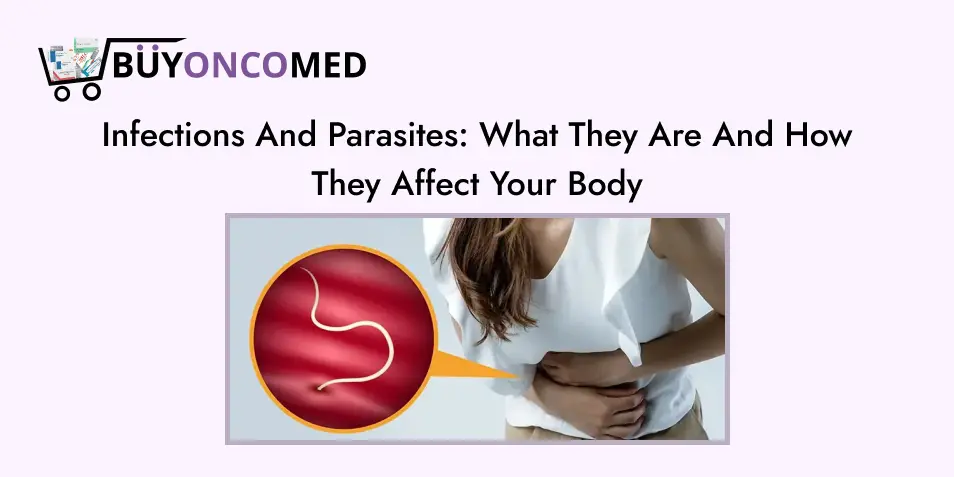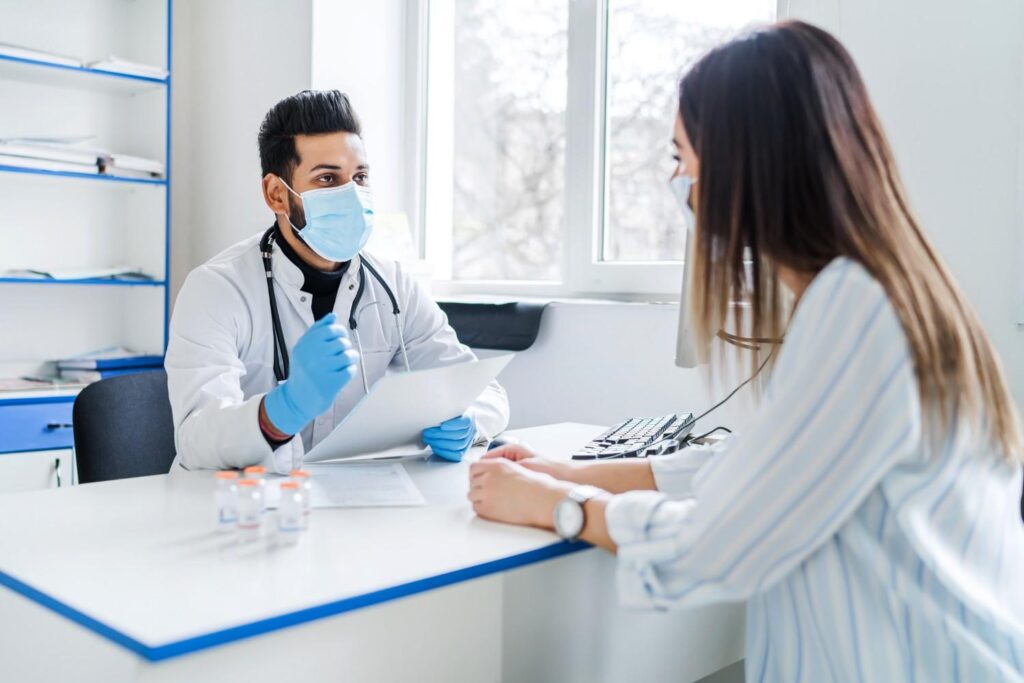
What Are Infections And Parasites?
Let’s keep it simple. Germs and bugs can make us sick. Some are so tiny you can’t see them. Others, like lice, you might notice on your skin or in your hair. When any of these little troublemakers get into your body and start causing problems, that’s called an infection.
A parasite is a type of germ with a sneaky twist. It doesn’t just make you sick and leave—it sticks around, living off your body, stealing your food, or even your blood. Parasites come in different shapes and sizes. Some are single-celled (like protozoa), others are worms (helminths), and a few are tiny insects like lice and ticks.
👉 How Do Infections And Parasites Get Into the Body?
They’re good at sneaking in. Maybe you ate unwashed fruit, drank water from a stream, or got bitten by a mosquito. Parasites can enter your body through food, water, skin, or even a bug bite. Some, like Giardia, turn into hard little cysts and hide in water until you drink it. Others, like hookworms, wait in warm soil and crawl in through your bare feet. Gross, right?
Types of Pathogens: Bacteria, Viruses, Fungi, and Parasites
Lots of tiny things can make us sick:
- Bacteria cause things like strep throat.
- Viruses bring us colds and the flu.
- Fungi give us itchy rashes, like athlete’s foot.
- Parasites are the freeloaders—living inside or on us, often for a long time.
Parasites are special because they don’t just visit. They settle in, sometimes for months or years, quietly using your body to survive.
👉 The Main Types Of Parasites
Here’s how doctors group them:
- Protozoa: Tiny, single cells (like Giardia or the malaria parasite).
- Helminths: Worms you never want to meet in person—roundworm, whipworm, hookworm.
- Ectoparasites: These live on your skin, like lice, ticks, and fleas.
Major infections And parasites: Their Effects On The Body
👉 Intestinal Protozoa: Giardiasis, Amoebiasis
Protozoa are so small, you need a microscope to see them. But when they move into your gut, you’ll know it. Giardia and amoeba cause watery diarrhea, tummy cramps, and sometimes weight loss. A certain amoeba (Entamoeba histolytica) can make you sick, causing blood in your stool and even fever.
👉 Intestinal Worms: Roundworm, Whipworm, Hookworm
Worms in your gut? It’s as bad as it sounds. Roundworms, whipworms, and hookworms live in your intestines and steal nutrients. Hookworms are sneaky—they crawl in through your skin, then suck your blood from inside. That can make you weak or even anemic. Kids with worms may not grow well and can have trouble at school.
👉 Parasites Affect More Than the Gut
Not all parasites stay in your belly. Some, like lung flukes, move into your chest and cause coughing or breathing trouble. Rare parasites can reach your brain and nerves, leading to confusion or seizures. It’s scary, but these are not common in places with good sanitation and clean water.
Signs, Symptoms & Impact On Daily Life

👉 General Symptoms Of Infection
If you’re feeling wiped out, have a fever, or keep running to the bathroom, you could have an infection. Skin rashes or itchy spots can also be clues, especially with parasites.
👉 Specific Effects Of Parasites
Long-term parasite infections and parasites steal energy and nutrients. This means you might always feel tired, get sick often, or—if you’re a child—have trouble growing. Sometimes, learning and memory suffer too.
👉 When To Get Help
If your symptoms don’t go away after a few days, or if you see blood in your stool, call your doctor. They may need a stool or blood test to figure out what’s wrong. Catching these problems early makes treatment much easier.
Prevention And Best Practices
👉 Hygiene, Food, And Water Safety
Wash your hands before eating. Always wash fruits and veggies, and cook meat until it’s done. If you’re not sure about the water, boil or filter it first. These small habits can stop most infections and parasites before they start.
👉 Avoiding Soil And Bug Risks
Don’t walk barefoot in areas where animals go to the bathroom—hookworms love warm, damp soil. Use bug spray and wear long sleeves when mosquitoes or ticks are around.
👉 Community Efforts
Some places have “deworming days” at schools, where every child gets medicine to clear out worms. Building toilets and bringing clean water to communities makes a huge difference, keeping everyone safer.
Treatment And Recovery
👉 Common Medications And Therapies
If you do get a parasite, don’t panic—there’s medicine for almost all of them. The doctor might give you a pill like metronidazole (for Giardia) or albendazole (for worms). Always take the full course, even if you feel better early.
👉 Recovery And Preventing Reinfection
Drink water, eat healthy, and rest. Sometimes, everyone in the house needs treatment, so you don’t keep passing the bugs back and forth.
Quick Tips
- Do you have tummy trouble or itchy skin that won’t quit?
- Have you been drinking untreated water, eating street food, or walking barefoot?
- If yes, it might be time to talk to a doctor or get tested.
Share what you’ve learned with your family and friends. The more people know, the less these bugs can spread!
Frequently Asked Questions (FAQs)
1. What’s The Difference Between An Infection And A Parasite?
An infection is any sickness caused by tiny living things—bacteria, viruses, fungi, or parasites. A parasite is a special kind of germ that lives in or on your body for a while and takes your food or blood.
2. How Can You Prevent Infections And Parasites?
Wash your hands. Eat food that’s cooked and clean. Drink safe water. Wear shoes and protect yourself from bugs.
3. What Are The Symptoms Of Giardiasis And Hookworm?
Giardia usually means diarrhea and an upset stomach. Hookworm often starts with an itchy rash on your feet, then makes you feel tired or weak.
4. Can Parasites Go Away Without Medicine?
Sometimes your body can get rid of minor parasites, but most need medicine. Don’t wait too long to get help.
5. Who Is At Higher Risk For Infections And Parasites?
Children, travelers, and people who don’t have clean water or toilets get these infections and parasites more often.
If you’re worried about an infection or parasites, ask a doctor for advice. Small steps—like washing your hands and eating clean food—can make a big difference for you and your family. Stay safe and help others do the same!

